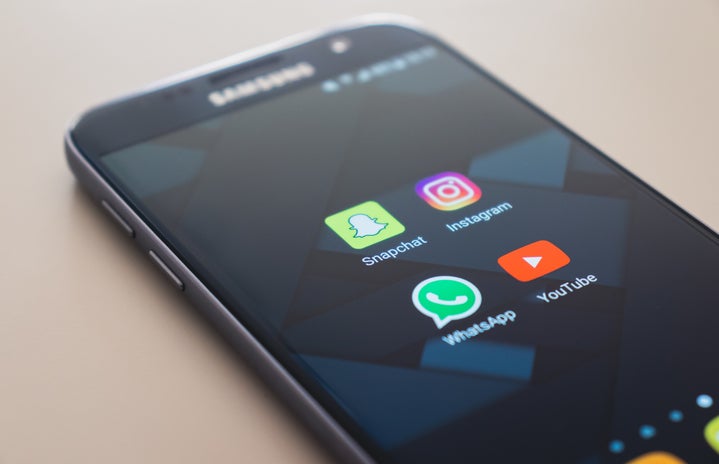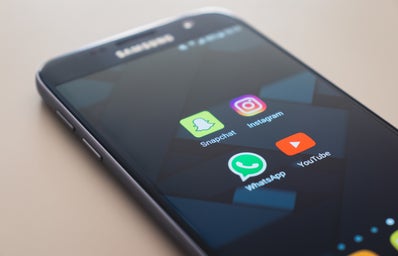Post-Bachelor Monday night, I was mindlessly scrolling through Twitter, and came across this seemingly unreliable tweet:
Skeptical, I announced the tweet to my friends, expecting us to have a laugh or an eye roll at social media’s inaccuracy of information. My friend Rachel FaceTimed our friend Julia while in the same house, and lo and behold, it was true.
If you haven’t heard about the FaceTime bug that caused a social media uprising, here is the summary. FaceTime’s new update with group calling had a bug in its code that allowed you to hear and see the person you were calling without them answering the call. All you had to do was FaceTime someone and then quickly add your own number, which would create a group call and allow you to hear and see the person on the other line without them answering. If you muted yourself, you could completely spy on the other person and hear whatever their iPhone microphone picked up. For example, Rachel called her friend and without answer she heard, “Oh, Rachel’s calling me.”
To be honest, we proceeded to try this hack on some of our other friends and it worked every time the other person didn’t answer our calls. After laughing and playing around with this huge miscalculation, fear and concern started to set in. What if you don’t hear a FaceTime call coming in? The other line could hear anything that you were doing or saying. If this bug in FaceTime was accidentally discovered by some random people, then what else is being recorded without us knowing? Speculation has been circling; could Apple have done this on purpose? Luckily, Apple responded very quickly and within a few hours, FaceTime’s group calling feature was disabled until further notice.
Check out the video in this tweet for proof of this glitch: https://twitter.com/BmManski/status/1089967572307640325
The public and internet went wild with this news. This uproar has contributed to the ongoing worry regarding our lack of personal privacy and the various conspiracy theories revolving around companies, strangers and/or the government having access to our private information. People are sensitive regarding internet security, especially following Facebook’s recent privacy scandal. In mid-2018, Cambridge Analytica used the profiles of tens of millions of Facebook users without their permission. When the news broke, there was shock and disturbance from millions. It was one of the largest breaches of personal privacy ever and it opened people’s eyes to the possible dangers of having information on the internet. Further back, in 2015, a dating website for married people called Ashley Madison was hacked, exposing users’ profiles alongside the fact that they were cheating on their spouses. Behind all the controversy of the website, this was another huge rupture of personal privacy that had a worldwide impact on users.
This FaceTime bug brought up some other suspicious technological discrepancies that I have been racking my brain over, specifically Siri and other smart technology. Recently, there have been major developments in smart technology, such as devices that can listen to you and respond accordingly. This is great, except for the fact that once they start listening, they never stop. iPhone and other listening devices such as Amazon Echo and Google Home use trigger words to kickstart the systems, such as, “Hey Siri,” “Alexa” and “Okay, Google.” Wouldn’t this mean these devices are listening before these prompts are said in order to hear the trigger words? It’s been assumed that the microphone in these devices is always on, but companies don’t admit to always recording. Google did admit to storing each interaction with the virtual assistant; however, you can access them and choose to delete them. In an interview with Business Insider, Bruce Schneier, a fellow at the Berkman Center for Internet and Society at Harvard Law, discussed the problem with trigger word devices: “It’s impossible to know if you say the word unless it listens. What are they doing with the data they’re hearing, and under what rules do they allow the government to listen in?” FaceTime’s defect is further proof that the microphone and camera are always on, even when you don’t want to be heard or seen. I think for most people, the government is less of a worry than hackers and other dangerous people getting access to their personal information.
Have you ever been talking about something, like how you want new headphones, for example, and then started seeing ads for it on your browsers and social media? Well, it’s not just you; many people are noticing this same phenomenon. So, I decided to put it to the test. I had recently been talking a lot about bathing suits with my friends and had even ordered some online. Over the span of a week, my entire Instagram and Facebook feed was filled with ads for various bathing suit companies. BBC collected a series of people’s experiences with seeing targeted ads just after having a verbal conversation. This person was at a bar talking about mattresses with his friend, which revealed a scary truth:
“As I had not bought, searched for, or even thought about a new bed in several years and I couldn’t remember seeing a mattress ad online ever, we started talking about beds and mattresses and guessing keywords, like slipping ‘California king’ and ‘buy a mattress online’ into the conversation, while intermittently scrolling Facebook. Two mattress ads in five minutes. None before that conversation.”
Source: https://www.bbc.com/news/technology-41802282
From a business and marketing standpoint, it is ingenious, but completely out of line. Many professionals say that the problem is lack of regulation. TIME senior writer Lev Grossman said that “there’s no easy answer: there are some technologies, like encryption, which simply cannot be controlled with legislation.”
Our naïvety to the safety of the internet is gradually being exposed year by year. When are we going to truly realize that everything private could become public? The only thing we can do immediately to protect ourselves is be aware and try to prevent access to applications we don’t trust. When an app requests our locations, or for our microphones or cameras to run in the background, we should be more careful with our answers. Or instead, we can throw your phones in the ocean and move to a remote island, which sounds pretty good right about now.


